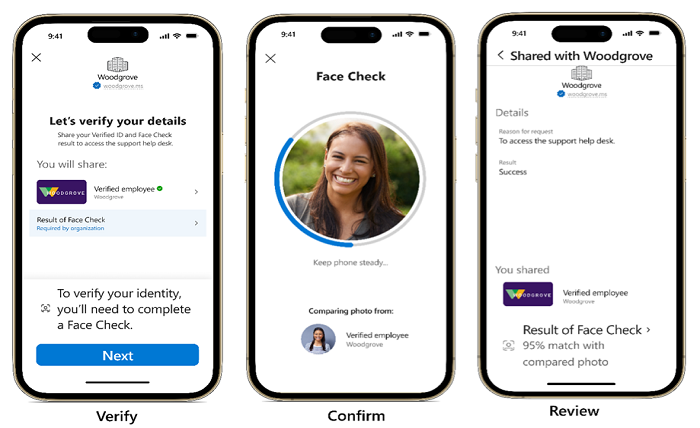Is FaceCheck ID Safe? Security and Privacy

As technology continues to advance, facial recognition systems like FaceCheck ID have become increasingly popular for verifying identities. Whether for unlocking devices, making payments, or accessing secure services, FaceCheck ID offers a convenient and efficient method of authentication. However, with the growing use of biometric data, concerns about privacy and security have emerged. In this post, we will explore whether FaceCheck ID is safe to use, looking at its security features, potential risks, and privacy concerns.
What is FaceCheck ID?
FaceCheck ID is a biometric authentication system that uses facial recognition technology to verify a user’s identity. The system captures and analyzes unique facial features, such as the distance between the eyes, nose, and mouth, to create a digital “faceprint.” This data is then compared to a pre-registered template for authentication. FaceCheck ID is commonly used in mobile apps, online platforms, and physical access systems, providing a secure, hands-free alternative to passwords and PINs. But, like any technology, it raises questions about its safety and reliability.
How Does FaceCheck ID Work?
FaceCheck ID works by using a combination of software and hardware to capture and process facial images. The process starts with the user registering their face, which is captured by a camera (typically on a smartphone or dedicated device). The system then analyzes the facial features and converts them into a digital template. During future logins, the system compares the live image with the stored template to confirm the user’s identity. This seamless process makes facecheck id an attractive option for securing personal and sensitive information. But the question remains: is FaceCheck ID safe?
Security Features of FaceCheck ID
FaceCheck ID incorporates several security features to enhance its safety. One key feature is the use of deep learning algorithms, which allow the system to distinguish between real faces and photos or 3D models. This helps prevent spoofing attacks, where someone might try to trick the system using a picture of the user. Additionally, FaceCheck ID often uses liveness detection, which checks for signs of movement (like blinking) to ensure the face is genuine. The system also typically encrypts the biometric data, ensuring that even if it is intercepted, it cannot be easily accessed or misused.
Privacy Concerns with FaceCheck ID
Despite its security features, FaceCheck ID raises significant privacy concerns. Biometric data, such as facial recognition, is sensitive and personal. Once your faceprint is stored, it becomes a piece of irreversible data that can’t be changed if compromised. This makes it especially vulnerable to data breaches. If hackers were to gain access to a database containing millions of faceprints, they could potentially misuse that data for identity theft or fraud. Additionally, concerns about surveillance and the potential for governments or private companies to misuse facial recognition technology have sparked debates about privacy rights.
Is FaceCheck ID Safe from Hacking?
Like any digital system, FaceCheck ID is susceptible to potential hacking. However, the technology behind FaceCheck ID has been designed to minimize these risks. For example, the use of encryption ensures that biometric data is protected both during transmission and while stored. Some FaceCheck ID systems also use multi-factor authentication (MFA), requiring additional forms of verification beyond just facial recognition. However, no system is entirely foolproof, and while the risk of hacking is relatively low, it’s essential to be aware that vulnerabilities could still exist.
FaceCheck ID vs. Traditional Passwords: Which is Safer?
FaceCheck ID offers a level of security that traditional passwords cannot match. Passwords can be weak, reused across different platforms, or easily guessed, making them a common target for hackers. On the other hand, FaceCheck ID uses unique biometric data that is difficult to replicate. Even if someone gains access to your password, they cannot impersonate your face. However, FaceCheck ID is not without its risks. For instance, if someone were to steal your phone or device and bypass other security measures, they could potentially use your face for authentication. But overall, FaceCheck ID is often considered more secure than relying on passwords alone.
How Does FaceCheck ID Protect Personal Data?
FaceCheck ID employs several measures to protect personal data. First, the facial recognition data is often stored locally on the device rather than on cloud servers. This limits the risk of data being exposed in the event of a server breach. In some systems, the data is even encrypted on the device, making it much harder for unauthorized parties to access it. Additionally, FaceCheck ID may anonymize or hash the facial data to add another layer of protection, ensuring that even if the data is intercepted, it cannot be traced back to an individual.
The Role of Government Regulations in FaceCheck ID Safety
Governments around the world have started regulating the use of facial recognition technology, including FaceCheck ID. In some regions, laws like the General Data Protection Regulation (GDPR) in the European Union impose strict rules on how biometric data can be collected, stored, and used. These regulations aim to protect users’ privacy and ensure that facial recognition systems are used responsibly. In the U.S., however, regulations are less comprehensive, and companies may use FaceCheck ID without much oversight, which can raise concerns about misuse and data privacy.
Can FaceCheck ID Be Used for Fraud Prevention?
FaceCheck ID can be an effective tool for fraud prevention, particularly in situations where traditional methods, such as passwords or PINs, are vulnerable. For example, FaceCheck ID is increasingly used for securing financial transactions and online banking, where the user’s face is used as an additional form of authentication. This helps prevent unauthorized access to accounts and reduces the chances of fraud. However, it’s important to note that no system is completely immune to fraud, and FaceCheck ID should ideally be used in conjunction with other security measures, such as MFA, for optimal protection.
Is FaceCheck ID Safe for Children and Vulnerable Populations?
While FaceCheck ID is generally safe for adults, its use with children and vulnerable populations raises additional concerns. For instance, children may not fully understand the risks of sharing biometric data, and their faces can change rapidly, leading to potential errors or complications with authentication. In addition, there may be concerns about consent and privacy for minors. Vulnerable populations, such as the elderly or those with disabilities, may also face difficulties with facial recognition accuracy. As a result, using FaceCheck ID with these groups should be approached cautiously, and it may be more appropriate to explore alternative authentication methods.
Conclusion
FaceCheck ID is generally considered a safe and secure method of authentication, thanks to its advanced security features, such as encryption, deep learning algorithms, and liveness detection. However, it is not without its risks. The potential for data breaches, misuse of biometric data, and privacy concerns are valid issues that users must consider. While FaceCheck ID is often more secure than traditional passwords, it should be used with caution, especially when dealing with sensitive information. Ultimately, whether FaceCheck ID is safe depends on how it is implemented, how data is stored, and how privacy regulations are followed.
FAQs
Is FaceCheck ID safe to use on my phone?
Yes, FaceCheck ID is generally safe to use on your phone, especially if the data is stored locally and encrypted.
Can FaceCheck ID be hacked?
While FaceCheck ID uses advanced security features to prevent hacking, no system is entirely immune to vulnerabilities.
Does FaceCheck ID store my facial data?
Many FaceCheck ID systems store facial data locally on your device, but some may store it on cloud servers, depending on the platform.
Is FaceCheck ID safer than using a password?
FaceCheck ID is generally considered safer than traditional passwords because it uses unique biometric data that is hard to replicate.
Can FaceCheck ID be used by children?
While FaceCheck ID can be used by children, it may not be the most reliable option due to facial changes and concerns about privacy and consent.




